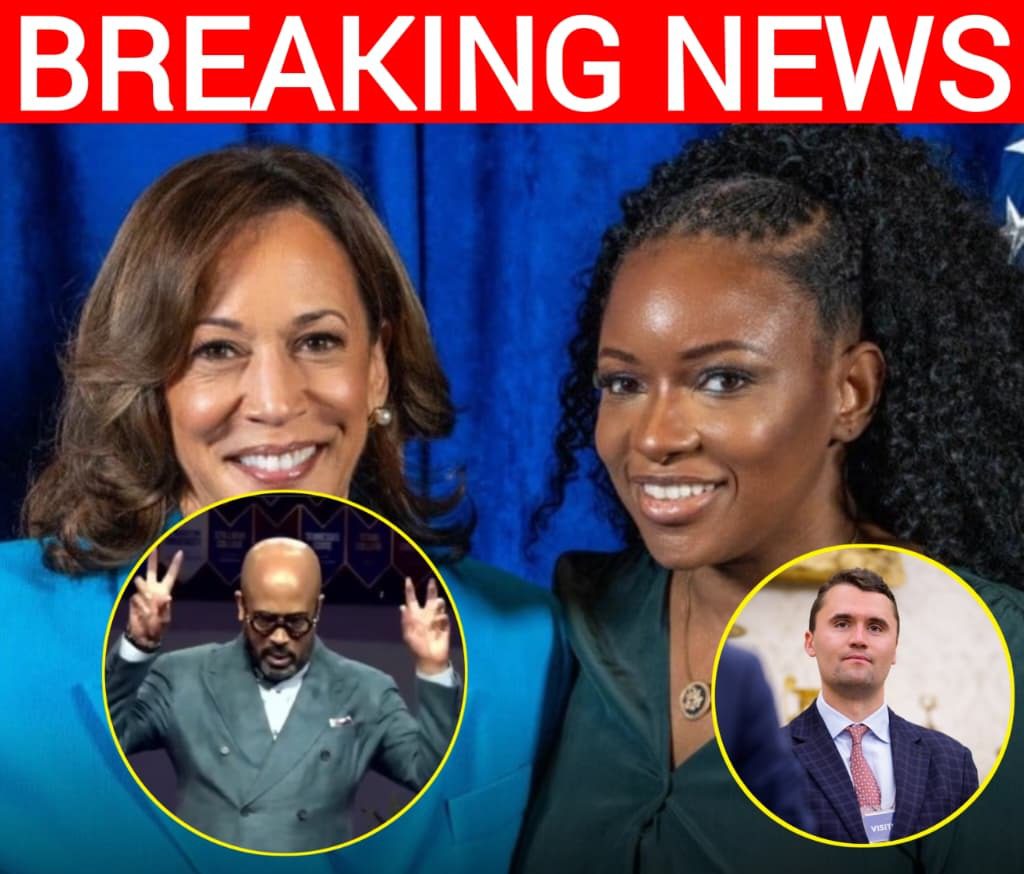Texas Pastor Implies Charlie Kirk Was A “Fake Christian,” Denies His Assassination And Declares “Don’t Compare Kirk To King” In Explosive Sermon
A Texas pastor tied to Rep. Jasmine Crockett has set off a firestorm after delivering a sermon that addressed Charlie Kirk’s death in a way many found deeply offensive and dismissive. Standing before his congregation, he declared that Kirk was not assassinated, but rather “killed by a white Christian,” and went so far as to label him a “fake Christian.” He punctuated his words by warning, “Don’t compare Kirk to King,” drawing a sharp line between Kirk and the legacies of leaders like Martin Luther King Jr.


The pastor’s sermon quickly spread online, sparking heated debate. Clips of the remarks show him insisting that Kirk’s death should not be placed in the same category as the assassinations of Martin Luther King Jr., Malcolm X, or Medgar Evers. He described those historic killings as true political assassinations, but said Kirk’s was not, calling it instead “white-on-white crime.” His words left many listeners stunned, as they came at a moment when Kirk’s supporters are still mourning and emotions remain raw.
While his comments were undeniably harsh, the pastor did also emphasize that he opposed political violence of any kind. He said clearly that Charlie Kirk “should still be alive,” that he should still be with his wife and children, and that no one deserved to be targeted for their political beliefs. Yet his repeated denial that Kirk was assassinated, and his framing of the death as something entirely different, overshadowed those acknowledgments and fueled outrage. For many, it felt less like compassion and more like an attempt to minimize or discredit the tragedy.
What struck people even more was the tone. His sermon wasn’t delivered in quiet reflection but with fiery energy, repeatedly reminding the audience that he was “going to keep it 100” and “tell the whole truth.” He tied Kirk’s death into a broader argument about America’s history of political violence, saying that the country has long been shaped by bloodshed, from slavery and lynchings to the assassinations of presidents and civil rights leaders. He argued that America cannot heal unless it first admits it is not “better than this” and confronts its violent past.
Reactions have been swift and polarizing. Supporters of Charlie Kirk have blasted the sermon as cruel and disrespectful, accusing the pastor of using a grieving family’s pain as a platform for political messaging. Others defended the pastor’s broader point about America’s violent history, even if they disagreed with the way he characterized Kirk. What is clear is that his words struck a nerve far beyond his church walls, resonating on social media where thousands of people have weighed in.
This moment captures the tension between grief, politics, and faith that has defined much of the conversation since Charlie Kirk’s death. While some may argue the pastor was trying to place the event into a larger historical context, the way he spoke about Kirk specifically has only added to the division. At a time when many are looking for unity and compassion, his remarks have instead become another flashpoint in a country already fractured over how to talk about loss, legacy, and justice.



